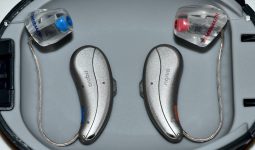Autism Spectrum Disorder (ASD), popularly referred to as Autism is a health condition with several neurodevelopmental disorders. The characteristic of these disorders ranges from a problem in empathy, communication, social interaction to behavioral pattern.
ASD is made up of different conditions. They include:
Asperger syndrome: Social problems and small scope of interest are the characteristics of people in this group. The upside is that they get average or above average-range on intelligence tests and do not have problems with language
Autistic disorder: This is noticeable in children below 3 years of age. Children in this group have problems with communication and socializing. When people think of autism, the autistic disorder is usually what they have in mind.
Pervasive development disorder – not otherwise specified (PDD-NOS): This group of kids does not fit into any other category but they exhibit low communication and social skills.
Childhood disintegrated disorder: Here, the children tend to develop normally for a while, like a year plus or two before they start to lose some or most of their communication and social skills.
Due to the different parts, different specialists are required in the diagnosing process. Physical therapist, Child psychiatrists, Audiologist, Speech pathologist, Child psychologist, Special education teacher, and a Pediatric neurologist.
Each person with autism has distinctive strengths and weaknesses due to the diversity in types. They can be severely challenged or highly skilled when they are learning, thinking of solving problems. This condition whose symptoms can start to be visible as early as 2 – 3 years of age in a child or for some 18months can require that a person need life-long care from others depending on the severity while some with this condition can do fine on their own. This means that two individuals with the same diagnosis in respect to autism may look completely different when their abilities and behaviours are compared due to difference in the combination of systems from person to person. There is no cure for autism spectrum disorder but detecting it and starting treatment early gives a chance for a better life for the patient.
Some symptoms of Autism
- Resistance to being touched.
- Avoiding eye contact.
- Making inappropriate facial expression.
- Difficulties in reading meanings to nonverbal clues.
- Lack of interest in other people’s interest.
- Repetition of phrases, words or actions Ordinary things like sight, smell, touch and sounds are highly sensitive to them.
- People with autism are keen on routines, making it difficult to adapt to change.
- Seizures are symptoms for some, it usually occurs in adolescent age.
Causes of Autism
There are different factors that can put one at a higher risk of getting autism. However, it’s exact causes are yet to be identified. Some of these factors include:
- A child born to older parents
- Gene mutation
- Having someone with autism in the family
- Having viral infections
- Being exposed to environmental toxins or heavy metals
- Being exposed to alcohol, anti-seizure medications and certain chemicals or drugs while in the womb.
- Mothers with obesity or diabetics have a higher risk of having babies with autism
- It has also been discovered that autism occurs more in boys than in girls.
How is it Diagnosed?
First, every parent must understand this – your child having few symptoms of autism does not mean they have autism spectrum disorder as there are behaviours that are checked before diagnosis are made.
This takes time and can be difficult to go through at times. To avoid the wrong diagnosis, it can sometimes take two to three years after the first symptom has been noticed to finally give a diagnosis.
It is advisable to start getting treatment for your child as you wait for a diagnosis, as studies have shown that early detection and treatment will be beneficial to the child as he or she grows as earlier stated.
Different stages or tests are carried out to determine the status of a person.
- First, parents will have to give information about their child’s behavioural, development and medical conditions. In addition to this, the parents have to give information about their family’s medical history.
- The next step would be carrying out different tests on the child or patient as the case may be to determine the child’s problem. Some of the tests that can be carried out are:
- Cognitive testing
- Hearing test
- Sensory motor evaluation
- Speech and language evaluation
- Observation by Development Special
- Lead Screening incase of lead poisoning as it can cause autistic-like symptoms
Treating Autism
Just as every individual with autism has unique symptoms, treatment options vary depending on these symptoms.
Therapy sessions and different methods are put in place to deal with health issues that come with autism. Issues like sleep disturbance, depression, obsessive-compulsive disorder, and epilepsy are some of the issues that accompany autism.
Some of the treatment methods are:
- Speech Therapy
- Verbal behavior therapy (VBT)
- Pivotal response treatment (PRT)
- Applied Behavior Analysis (ABA)
- Early Start Denver Model (ESDM)
- Floortime
- Occupational therapy (OT)
- TEACCH
Savant Skills
One of the special things about people with autism is SAVANT SKILLS.
Savant Skills in ASD is estimated to occur in 10% of autistic patients. This is a condition in which people with autism have special savant skills. These skills ranges from musical abilities, artistry, mathematical calculations and the ability to remember details accurately. This means an autistic savant can calculate mathematical large sums in a short time, or can memorize information after a short glance.
One misconception people have it that autism only occur at childhood stage. Recent researches have shown that adults can also be diagnosed with autism. This occurs when the signs are delayed and do not show up till adulthood.
Another misconception people have had is that autism can be attributed to the receiving of vaccines. Scientists have proven this to be wrong as no study has been able to prove that it is related.





